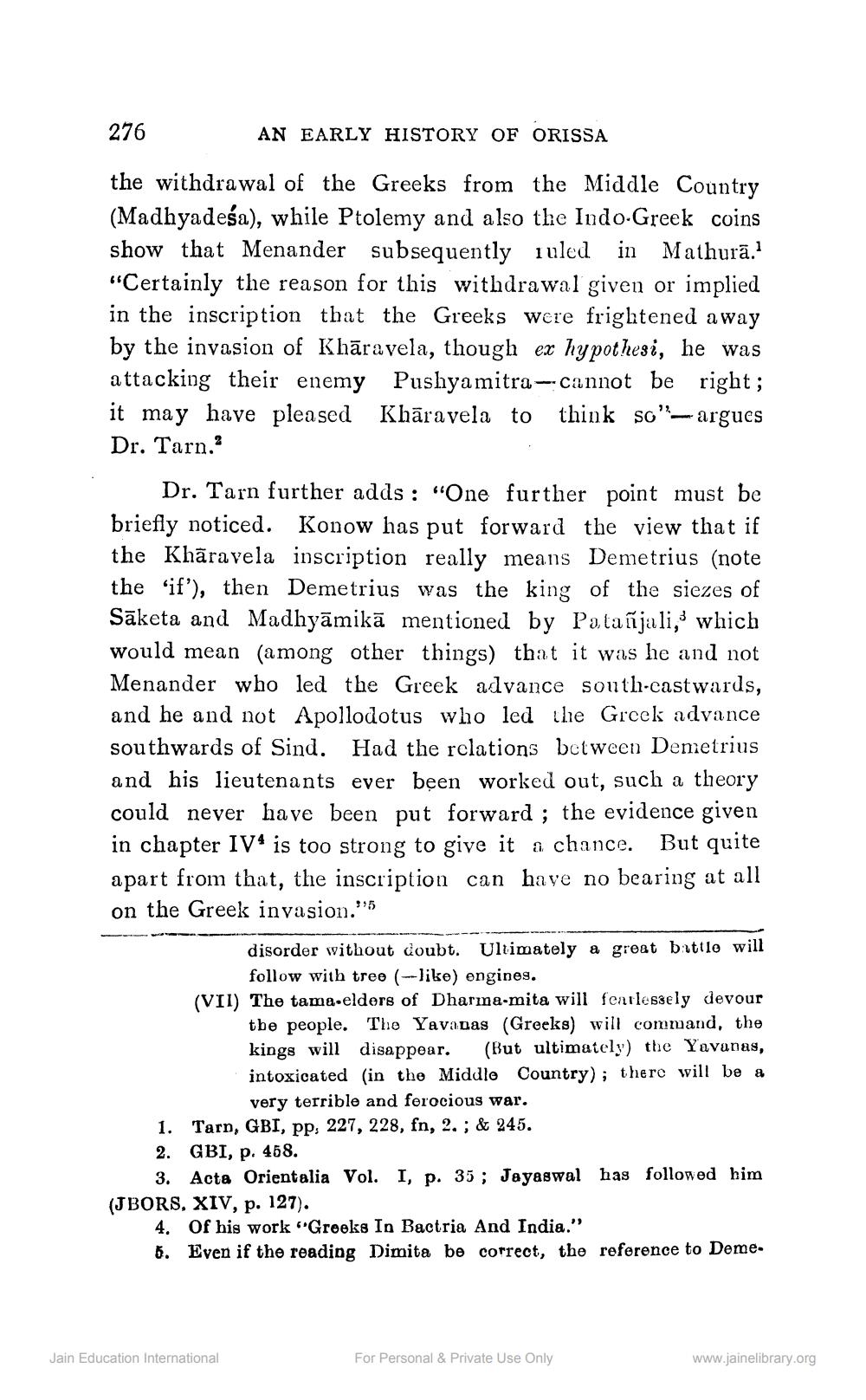________________
AN E
276
AN EARLY HISTORY OF ORISSA the withdrawal of the Greeks from the Middle Country (Madhyadeśa), while Ptolemy and also the Indo-Greek coins show that Menander subsequently ruled in Mathurā.' "Certainly the reason for this withdrawal given or implied in the inscription that the Greeks were frightened away by the invasion of Khāravela, though ex hypothesi, he was attacking their enemy Pushya mitra - cannot be right; it may have pleased Khāravela to think so'-argues Dr. Tarn.
Dr. Tarn further adds: “One further point must be briefly noticed. Konow has put forward the view that if the Khāravela inscription really means Demetrius (note the 'if'), then Demetrius was the king of the siezes of Sāketa and Madhyāmikā mentioned by Patañjali,' which would mean (among other things) that it was he and not Menander who led the Greek advance south-eastwards, and he and not Apollodotus who led the Greek advance southwards of Sind. Had the relations between Demetrius and his lieutenants ever been worked out, such a theory could never have been put forward ; the evidence given in chapter IV" is too strong to give it a chance. But quite apart from that, the inscription can have no bearing at all on the Greek invasion."5
disorder without doubt. Ultimately a great battle will
follow with tree (-like) engines. (VII) The tama-elders of Dharma-mita will fearlessely devour
tbe people. The Yavapas (Greeks) will command, the kings will disappear. (But ultimately) the Yavanas, intoxicated in the Middle Country); there will be a
very terrible and ferocious war. 1. Tarn, GBI, pp, 227, 228, fn, 2. ; & 245. 2. GBI, p. 458.
3. Acta Orientalia Vol. I, p. 35; Jayaswal has followed him (JBORS, XIV, p. 127).
4. Of his work "Greeks In Bactria And India." ő. Even if the reading Dimita be correct, the reference to Deme.
Jain Education International
For Personal & Private Use Only
www.jainelibrary.org




